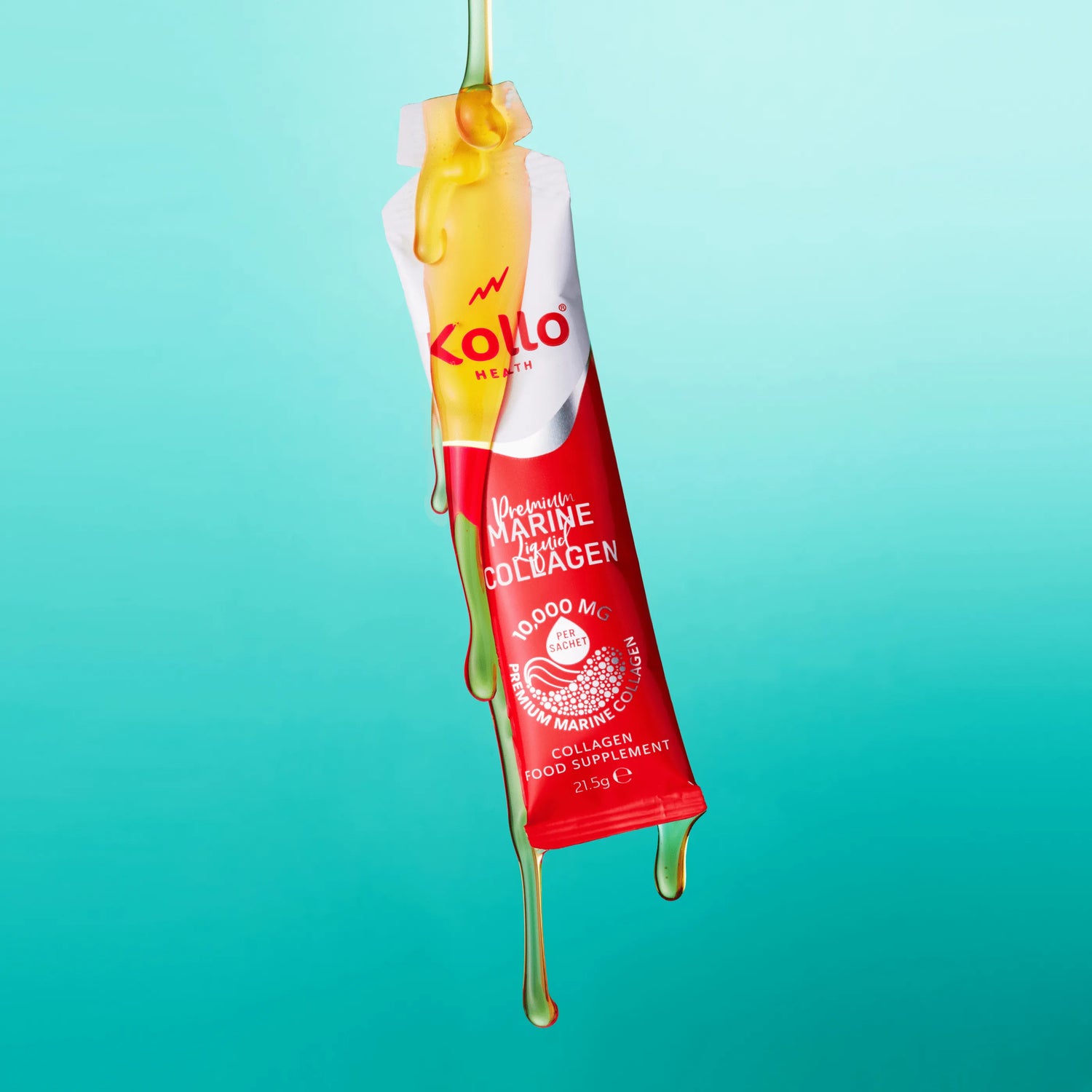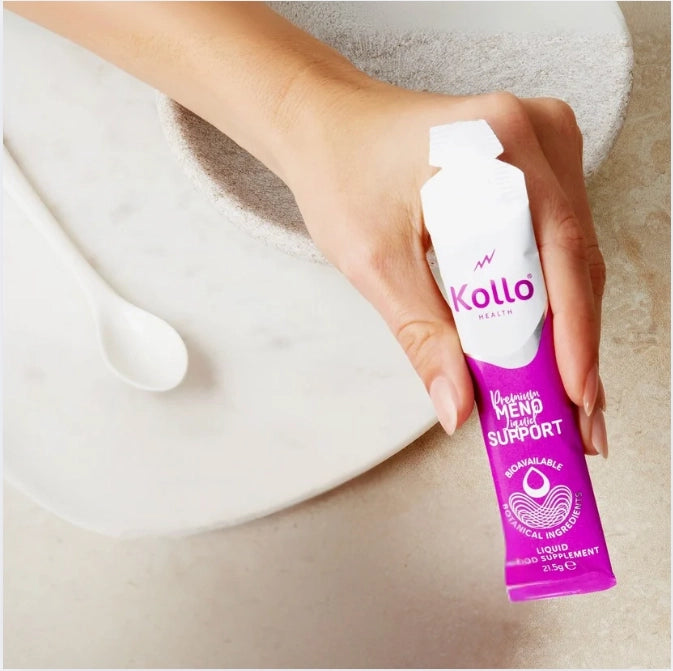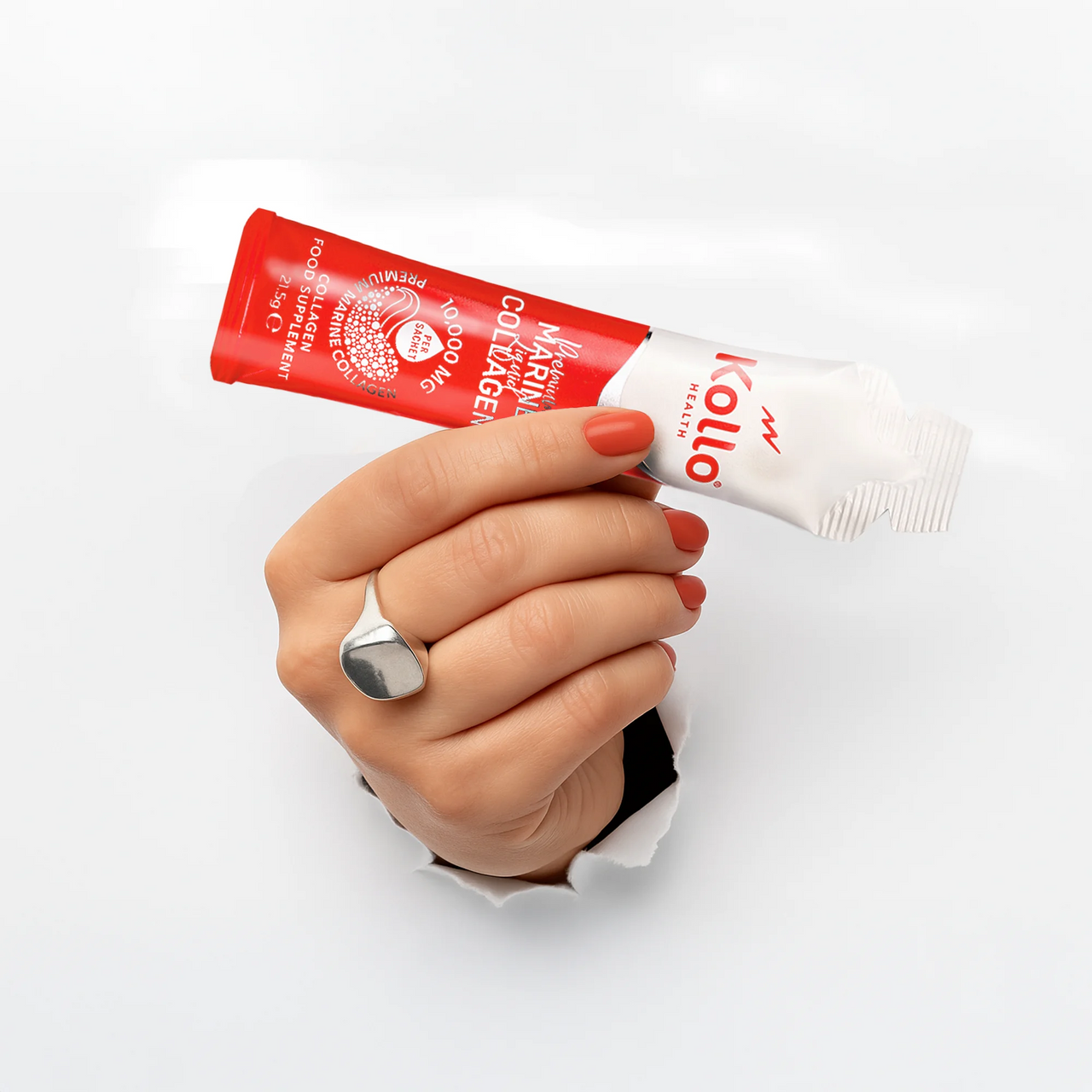Marine collagen: How long to see the benefits?
Marine collagen supplements offer wide-ranging benefits. But let's find out long it takes to see the benefits of marine collagen supplements.
Collagen is one of the most abundant proteins in your body. The job of collagen is to help maintain structure and elasticity. Thus, you can find it everywhere from your hair and fingernails to your skin, bone, muscles and blood vessels. We produce collagen using a process called collagen synthesis. This process starts by breaking down the proteins we eat into individual amino acids. These then bind together to create a rope-like chain of collagen. Collagen is, therefore, very important for our overall health. The problem is that our bodies produce less collagen as we age. Many older people are not producing enough collagen to sustain muscle mass and skin elasticity.
The best way to combat this is to take regular collagen supplements. Marine collagen is the best type of supplement for older people. But what is marine collagen, how does it differ from bovine collagen and, more importantly, how long to see the benefits of marine collagen?
What is marine collagen?
Marine collagen comes from the skin and scales of fish, typically cod or snapper. We break the collagen protein down using a process called hydrolysis. This makes the individual proteins easier to dissolve in liquid.
When introduced into the body, marine collagen proteins break down into their constituent amino acids. These acids are then absorbed by the body where they power collagen production to strengthen skin, bone and ligaments.
Marine collagen vs bovine collagen
The body contains 28 different types of collagen peptides. The most important of these are Type I, II and III. Type I collagen exists in skin, bone and ligaments. Type II is mostly in cartilage. And Type III has a presence in the skin, muscles and blood vessels.
Marine and bovine collagen differ in the constituent collagen peptides they contain. Bovine collagen contains mostly Type I and III peptides. While marine collagen contains mostly Type I and II peptides.
This makes marine collagen more beneficial for building bone and ligament strength. Bovine collagen, meanwhile, is better for building muscle and improving the cardiovascular system.
Benefits of marine collagen
Marine collagen supplements offer wide-ranging benefits for people of all ages. It can make you look younger, reduce inflammation of the joints and help build muscle mass.
Let's take a look at four proven ways marine collagen can improve your health and appearance.
1. Promotes skin elasticity
Collagen makes up around 75% of our skin tissue, where it acts as a kind of scaffolding holding everything together. Skin with high levels of collagen looks more radiant due to its plump hydrated appearance. A recent study showed that daily ingestion of 50mL of Type I collagen for 60 days led to a noticeable reduction in skin dryness and wrinkles. While increased collagen density and skin firmness were also observed after 12 weeks.
2. Improves bone strength
Marine collagen is rich in Type I collagen peptides that help promote bone growth. A recent study in China suggests this may be down to increased absorption of calcium, phosphorus and other minerals into the body. Collagen is also responsible for stimulating the activity of osteoblast cells in the bone itself. Osteoblast cells secrete collagen to create osteoid, the key unmineralised portion of our bones.
So regular collagen supplements may also reduce the risk of musculoskeletal degenerative diseases. This can protect against osteoporosis developing later in life.
3. Increase muscle mass
Type I collagen contains large amounts of glycine, an amino acid that your body uses to make creatine. This supports muscle mass and repairs cell damage in the muscle itself. Muscle mass decreases by around 3-8% every decade after age 30 and accelerates further after age 60. Regular marine collagen intake can help older people maintain muscle mass and reduce muscle pain as they get older.
4. Strengthens hair and nails
Marine collagen is rich in the amino acids your body needs to make keratin. This is one of the building blocks of hair and nails. So increasing your collagen intake will also improve your hair and nail strength. Collagen also makes up 70% of the dermal layer of the skin. This is where hair follicles get the nutrients to produce pigment. So increasing your collagen intake may also reduce the appearance of grey hairs.
How long will it take to see the benefits of marine collagen?
The amount of time it takes before you will see the benefits of marine collagen varies. It depends on the type and severity of the condition you wish to treat. We have based the following timelines on real-world medical studies.
Skin improvement: 1-3 months
Several studies have taken place to monitor the effects of taking regular collagen supplements on the skin. The results have shown promising results for skin firmness, hydration and elasticity.
A recent German clinical trial showed subjects who took collagen saw improvements in skin elasticity, hydration and density. These improvements occurred within 12 weeks. The sample involved 72 female subjects aged 35 and over.
Other studies suggest even more impressive results. This study of oral collagen supplements shows that subjects saw improvements in skin elasticity after just 4 weeks.
Muscle mass: 3 months
Because muscle mass naturally decreases with age, older people must work to maintain as much muscle mass as possible. Several studies have shown that collagen supplements can help sustain muscle mass in both men and women.
This study for example studied the effects of collagen supplements on premenopausal women. Subjects showed improved body composition and regional muscle strength after just 12 weeks.
While this report shows that active men who took collagen saw improved body composition and skeletal muscle mass. These benefits took around 12 weeks to manifest. The subjects took 15g of collagen a day and exercised three times a week during the test period.
Joints & tendons: Up to 12 weeks
Marine collagen contains a wealth of Type II peptides that help to maintain the integrity of cartilage. This can help to reduce inflammation in the joints. Taking marine collagen may also reduce pain associated with musculoskeletal conditions like arthritis.
This study shows that daily collagen supplements combined with other vitamins helped to reduce joint pain by 43% and improve mobility by 39%. These results came in as little as 12 weeks. The report concluded that collagen supplements may be effective at slowing down the signs of ageing.
And this Canadian study shows that daily supplements of Type II collagen helped manage knee osteoarthritis. They were more effective than existing glucosamine hydrochloride treatments. The study covered 190 volunteers and took place over 180 days.
Bone density: 12 months
Marine collagen is rich in Type I peptides, which are responsible for bone growth and improving bone density. Taking regular marine collagen supplements should result in improved bone mass and strength. This is especially true for people aged over 65.
A recent study of postmenopausal women backs this up. It showed taking a daily dose of 5g of Type I collagen peptides resulted in improved bone growth after 12 months.
Marine collagen is also shown to inhibit bone-breakdown osteoclast cells. Research is still ongoing but this may prove to be effective for preventing osteoporosis and aiding bone remodelling.
Hair and nails: Up to 24 weeks
Marine collagen contains Proline, which is one of the 11 non-essential amino acids. Your body uses Proline to make keratin, which is the primary ingredient of hair and nails. So daily doses of marine collagen should help keep hair and nails strong.
This study shows that taking 2.5g of bioactive collagen peptides daily results in improved nail growth and strength. During the trial, which lasted 24 weeks, subjects reported fewer broken nails and improved nail appearance.
This research also shows that antioxidants from fish scales are effective at combating free radicals. These compounds develop as a result of stress, smoking, alcohol and other environmental influences. Too many free radicals can lead to hair follicle damage which can lead to thinning and baldness.
Conclusion
The above studies show that marine collagen is an effective treatment for a range of conditions. But the time you can expect to see results varies depending on both the type and severity of the condition.
The fastest results were for joint and tendon relief with most patients experiencing relief within a few days. The longest interval was around 12 months for bone mass improvements. This is not surprising since the pathology of bone growth is quite slow.
But how does marine collagen compare to bovine collagen? Most experts agree that marine collagen is more effective at than bovine.
Marine collagen is also suitable for people that eat fish but not meat. And because it comes from fish and not cattle, it can be produced in a more environmentally friendly and sustainable way.
Learn more: How long to see the benefits of marine collagen?







